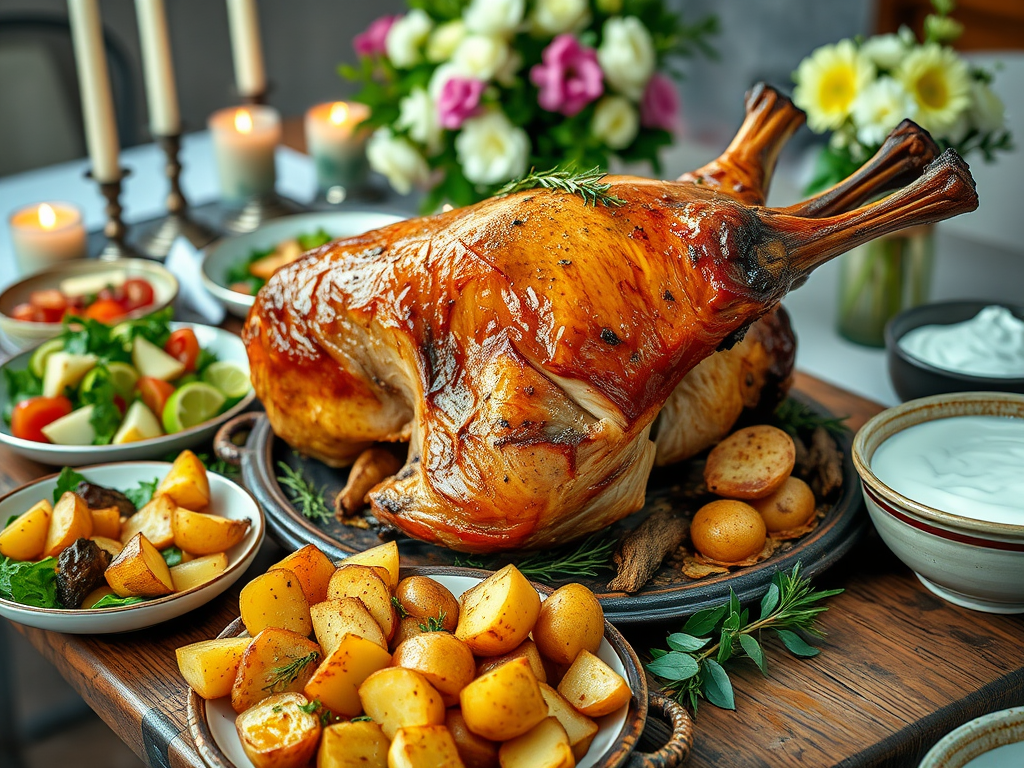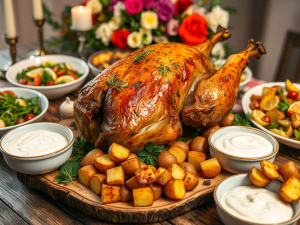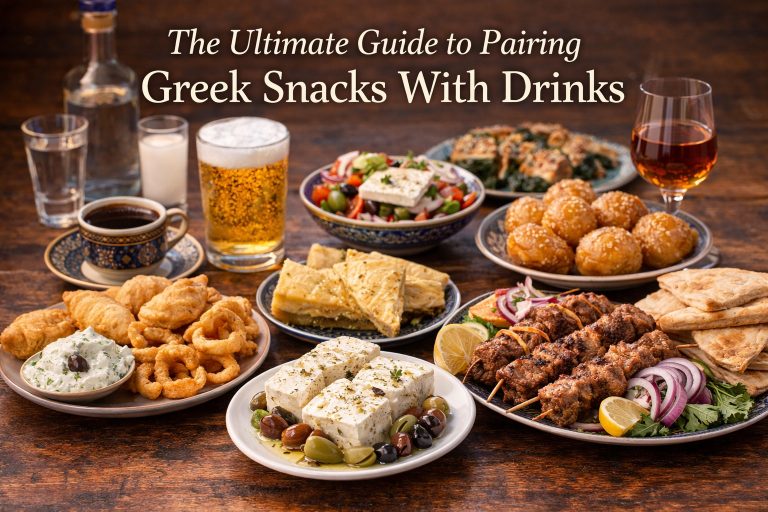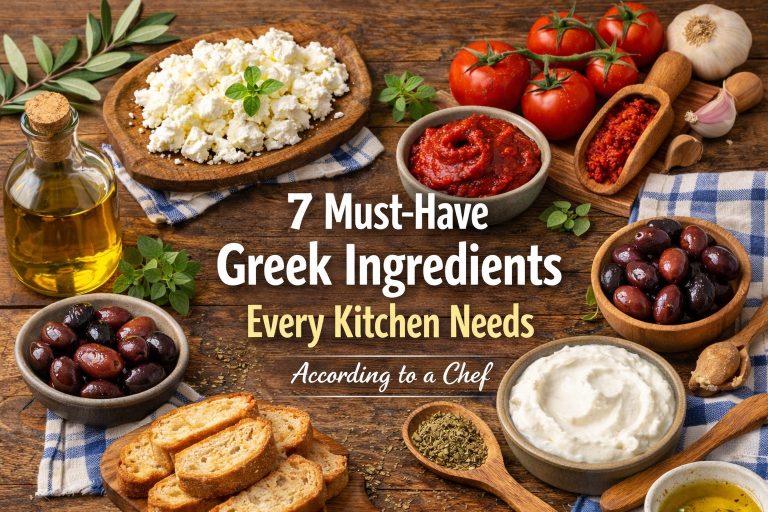
Roasted lamb is not just a meal but a cornerstone of Greek Easter celebrations, embodying tradition, flavor, and a rich cultural heritage. This dish represents the spirit of the holiday, symbolizing sacrifice, renewal, and the joy of family gatherings. Understanding the significance of roasted lamb can deepen your appreciation for this beloved dish and its place in the hearts of many.
Historical Significance
In Greece, lamb has long been associated with Easter due to its biblical connotations. The lamb is symbolic of Christ, often referred to as the “Lamb of God.” This connection makes it a fitting dish for the celebration of the Resurrection. The act of roasting lamb is rooted in ancient traditions, where it was common to sacrifice a lamb during religious festivals.
Historically, Greek families would gather after the midnight church service on Holy Saturday to break their Lenten fast and celebrate the Resurrection with a meal that signifies joy and togetherness. Roasted lamb, often served with an array of sides, takes center stage during this festive occasion.
Preparing the Lamb
Ingredients
To prepare a traditional roasted lamb, you will need:
- 1 whole lamb (or a leg of lamb for smaller gatherings)
- Olive oil (preferably extra virgin)
- Garlic (whole cloves or minced)
- Fresh herbs (such as oregano, thyme, and rosemary)
- Lemon juice (freshly squeezed)
- Salt and pepper
- Optional: White wine for marinating
Marinade
- Marinate the Lamb: Start by marinating the lamb a day before roasting. In a large bowl, combine olive oil, minced garlic, lemon juice, and finely chopped herbs. For an additional layer of flavor, consider adding a splash of white wine. Rub this mixture all over the lamb, ensuring it is well-coated. Cover and let it sit in the refrigerator overnight, allowing the flavors to penetrate the meat.
Roasting
- Prepare for Roasting: Preheat your oven to 160°C (320°F) or prepare a spit for outdoor roasting. If using an oven, place the lamb in a roasting pan. For outdoor roasting, secure the lamb on a spit, ensuring it is balanced for even cooking.
- Roast the Lamb: Cook the lamb slowly at a low temperature for several hours, basting occasionally with the juices to keep it moist. Cooking time will vary based on the size of the lamb; a whole lamb can take anywhere from 4 to 6 hours. The goal is to achieve tender meat that falls off the bone and a beautiful golden crust.
Achieving the Perfect Roast
For optimal results, consider these tips:
- Use a Meat Thermometer: For a perfectly cooked lamb, aim for an internal temperature of about 70°C (160°F).
- Baste Frequently: This helps to keep the meat moist and enhances the flavor.
- Let it Rest: After roasting, allow the lamb to rest for at least 20 minutes before carving. This allows the juices to redistribute, ensuring every bite is succulent.

Serving the Lamb
Once roasted, it’s time to carve and serve the lamb. This dish is traditionally served with a variety of sides that complement its rich flavors:
- Greek Salad: A refreshing mix of ripe tomatoes, cucumbers, olives, red onions, and feta cheese, dressed with olive oil and oregano.
- Roasted Potatoes: Lemon-roasted potatoes seasoned with garlic and herbs make for a perfect accompaniment.
- Tzatziki: A cool yogurt dip made with cucumbers, garlic, and dill, ideal for balancing the richness of the lamb.
- Pita Bread: Warm, freshly baked pita or traditional bread is great for soaking up the flavorful juices.
A Festive Atmosphere
Roasted lamb is often served during a festive meal that includes family and friends. The atmosphere is filled with laughter, the clinking of glasses, and the sharing of stories. Many families also incorporate traditional music and dancing into their celebrations, creating a joyful and vibrant event.
Conclusion
Roasted lamb is more than just a meal; it’s a celebration of life, family, and tradition during Greek Easter. The aroma of the lamb roasting, the gathering of loved ones around the table, and the joy of sharing this delicious dish create lasting memories. Whether you’re following a family recipe or trying it for the first time, roasted lamb is sure to be a highlight of your Easter festivities.
As you prepare to enjoy this dish, take a moment to reflect on its significance and the rich traditions it represents. From the marinating process to the final feast, roasted lamb captures the essence of Greek culture, making it an unforgettable part of any Easter celebration. Embrace this culinary tradition and savor every moment shared with family and friends around the table.



